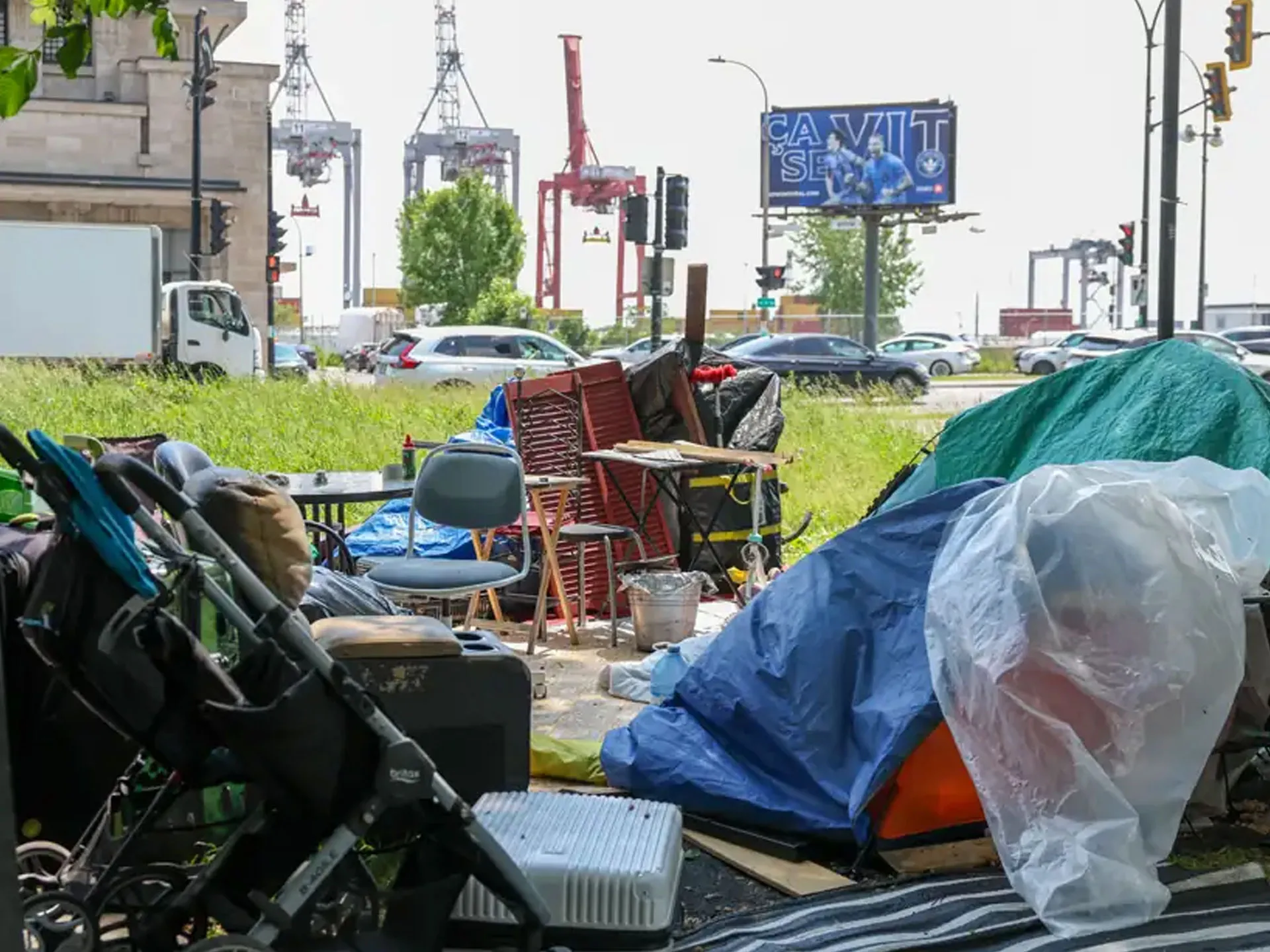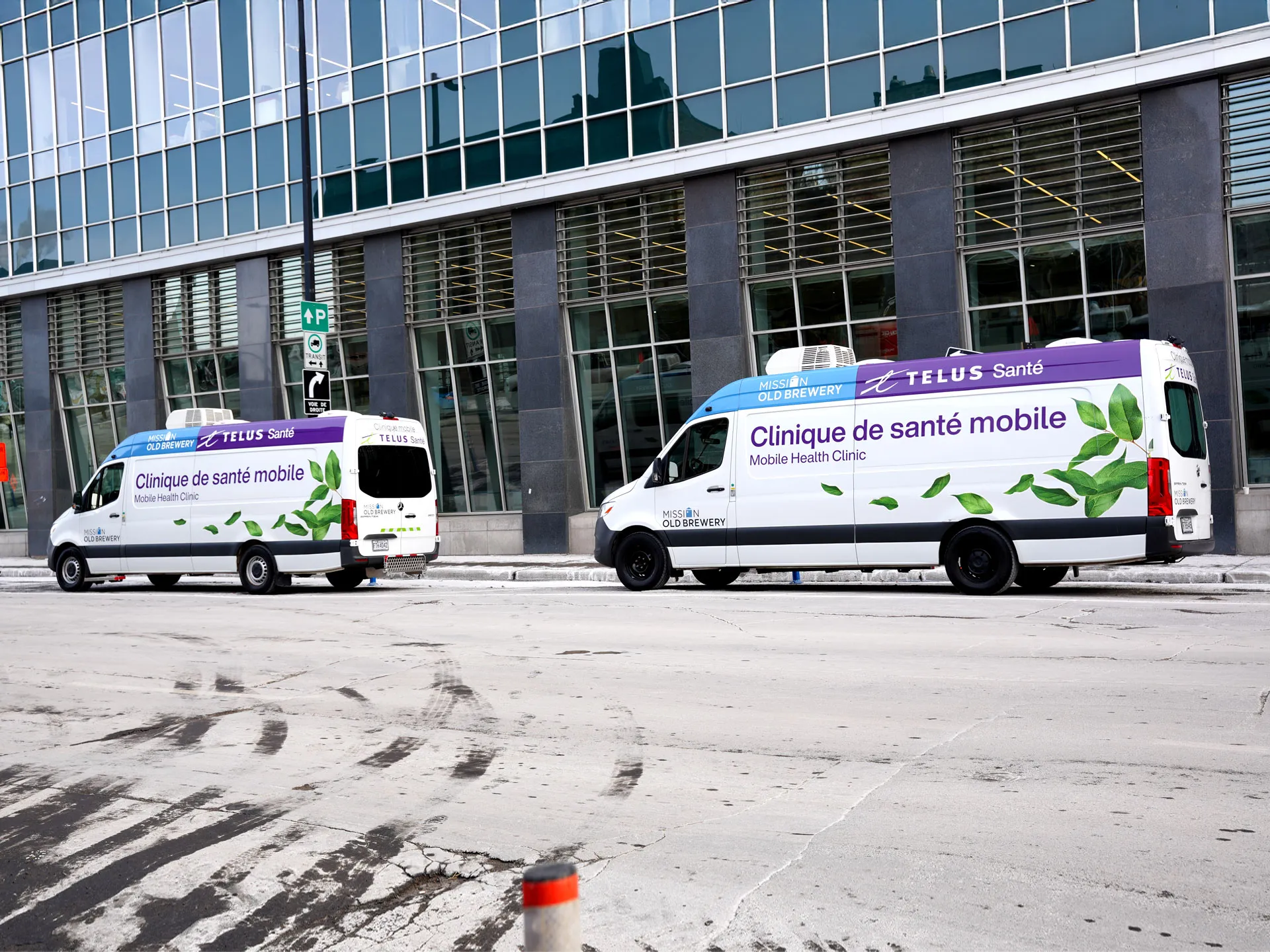
Don’t dismantle the Notre-Dame encampment without providing an alternative!

Notre-Dame camp. Photo credit: François Roy, La Presse archives.
Homeless encampments are spreading and becoming increasingly visible in Montreal. Many people have seen the one on Notre-Dame Street East in the Mercier-Hochelaga-Maisonneuve borough. It is a stark example of the growing magnitude of the province-wide homelessness crisis.
On June 5, the people living in the encampment received eviction notices ordering them to vacate the site by June 10, although they had nowhere else to go. A total of 30 marginalized and vulnerable people, many grappling with mental health or substance use issues, were given five days to pack up and leave, or their few belongings would be thrown out without further notice.
The Mobile Legal Clinic swung into action and filed an emergency motion. On June 18, Superior Court Judge Babak Barin granted an injunction suspending the dismantling of the encampment. This decision was consistent with the trend in courts outside Quebec: people cannot be kicked out of encampments when there are no adequate alternatives. As we know, Montreal’s emergency shelters operate at full capacity year-round.
The court ordered the Ministère des Transports et de la Mobilité durable du Québec to halt the dismantling for 10 days. The interim injunction may be renewed for additional 10-day periods at the court's discretion.
The community of unhoused people living along Notre-Dame Street have therefore won a temporary reprieve. But there were more than 400 encampment evictions in the City of Montreal last year. Community organizations that support people experiencing homelessness have long argued that tearing down encampments without providing concrete solutions only moves the problem down the road. It also disrupts the trusting relationships that social workers have built with encampment residents. Those connections are crucial for reintegration into society.
So what should be done? We believe Montreal should draw on best practices that have worked elsewhere and modernize its approach. For one thing, clear and effective intervention protocols should be established. In January, a committee of experts (of which I was a member) set up by the City of Montreal and chaired by its former homelessness commissioner released a report calling for standardized rules across all boroughs to establish a temporary, tolerant regulatory framework for encampments and ensure that essential services are delivered directly on site. This would improve living conditions for encampment residents and facilitate their transition to long-term housing solutions.
The report makes 15 concrete action recommendations backed by a broad consensus and calls for joint leadership by municipal authorities and the CIUSSSs. One key recommendation is the creation of a multifunctional intervention team to deliver outreach services to people living in public spaces. It would assess their needs, make sure their immediate health and hygiene needs are met, and work with each person to develop a rehousing plan.
The June 18 ruling sends a clear message: encampments must not be dismantled without providing an alternative and homelessness must be addressed with humanity, vision and a plan. It is now up to governments, public institutions and community organizations to turn this moment into a catalyst for change. Together, we must build sustainable, inclusive solutions that respect fundamental rights—so that everyone can find stability, dignity and a place in the community.
James Hughes
President and CEO, Old Brewery Mission
Dernières nouvelles
-
 Meet Jacinthe Corbin, Director of Housing Support Services
Meet Jacinthe Corbin, Director of Housing Support Services -
 The Old Brewery Mission and TELUS Health for Good launch second mobile
The Old Brewery Mission and TELUS Health for Good launch second mobile -
 Homelessness in the downtown core: We must house, care and innovate
Homelessness in the downtown core: We must house, care and innovate -
 Meet Jean-François Dagenais, Vice President of Finance, IT and Facilities
Meet Jean-François Dagenais, Vice President of Finance, IT and Facilities -
 Old Brewery Mission unveils new employer brand
Old Brewery Mission unveils new employer brand - See all news